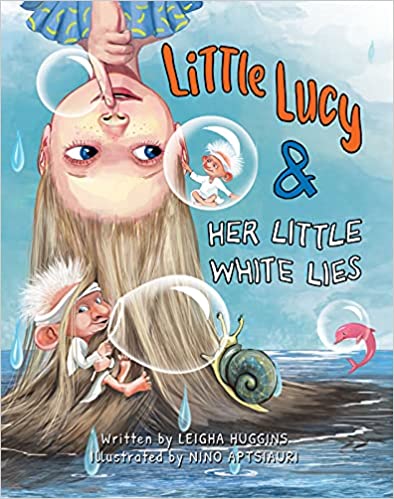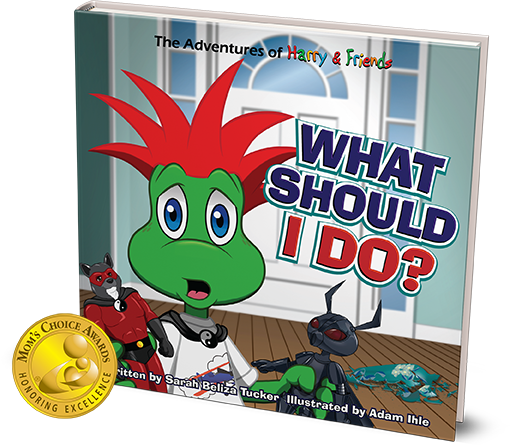
As parents, it’s our job to teach our children the importance of honesty. It can be a difficult transition from telling little white lies here and there to teaching them how to always tell the truth – no matter what. But with some key strategies, we can successfully guide our kids down the path from lying when convenient to absolute integrity in their daily lives! With that said, let’s explore the top techniques for helping kids become more honest people – so they can walk confidently through life with their heads held high.
Explain the Difference between Little White Lies and Big Truths to Kids

Kids, have you ever heard of little white lies and big truths? Well, let me explain the difference! A little white lie is when someone tells a small untruth that doesn’t really hurt anyone. For example, if your aunt gives you a present you don’t really like, you might say you love it to spare her feelings. However, a big truth is when someone tells you something important you need to know, even if it’s hard to hear. This can be difficult, but it’s important to remember that the truth will always set you free. So remember, telling a little white lie might seem easy, but in the long run, it’s better to be honest and tell the truth.
Teach Kids Resiliency and How To Apologize for Mistakes They Make

I often come across kids who struggle with resiliency and taking ownership of their mistakes. But here’s the thing, making mistakes is a part of life, so it’s essential for kids to learn how to apologize and bounce back from these missteps. One way to teach kids resiliency is by encouraging them to practice positive self-talk. They need to understand that making mistakes doesn’t define their worth as a person. Additionally, apologizing is a crucial step in building strong and healthy relationships. Children should be taught to say sorry and do so sincerely and meaningfully. They should take responsibility for their actions and acknowledge how they made the other person feel. As an added bonus, teaching kids how to apologize and bounce back from mistakes can lead to greater self-confidence and better problem-solving skills in the future.
Encourage Honesty Through Positive Reinforcement and Rewards

I always recommend positive reinforcement and rewards as a way to reinforce habits of honesty. It can be as simple as praising a child for being truthful or even creating a reward system for those who consistently tell the truth. While honesty should always be encouraged for its own sake, a little positive reinforcement never hurts. Plus, it’s a great way to make honesty feel like a habit and not just a lesson to be learned. Remember, honesty is always the best policy.
Model Integrity Yourself with Your Own Actions and Words

I cannot stress enough the importance of modeling integrity with your own actions and words. Children are perceptive and can quickly spot when someone is not living up to their values. So, if you want kids to learn and internalize integrity, you need to show them how it’s done. It’s not just about teaching them the difference between right and wrong; it’s about demonstrating it in your own behavior. Whether you realize it or not, you are always being watched by the children around you. Therefore, as a witty and creative individual, you have an opportunity to approach this topic in a fun and engaging way that will resonate with the kids. So, show them that words and actions do indeed align and that integrity is not just a virtue but a way of living.
Play Games that Challenge Kids to Identify True from False Statements

Parents and educators are always on the hunt for new and engaging ways to help children develop their critical thinking skills. One fun way to do so is by playing games that challenge kids to identify true from false statements. Not only do these games sharpen their ability to separate fact from fiction, but they also promote active listening and deductive reasoning. Whether it’s a board game or a digital game, children will enjoy the thrill of trying to guess which statement is true and which is false. Plus, it’s a great opportunity for lively conversation and debate, so grab your game and let’s get challenging!
Talk Openly with Your Kids about the Benefits of Being Honest

I cannot stress enough the importance of talking openly with your kids about the benefits of being honest. Yes, we all know that lying is wrong, but have you ever truly considered the positive impact that honesty can have on your child’s life? For starters, being truthful can build trust with others, including parents, teachers, and friends. It can also help them feel more confident in themselves and their actions. And let’s not forget about the fact that honesty can actually make life easier in the long run. So, next time your little one is tempted to fib, remind them that honesty really is the best policy. And who knows, maybe they’ll start preaching it to their friends too!
Overall, teaching kids about honesty is not just about yelling and punishing them for bad choices.
It’s about enabling them to be resilient and able to apologize when they make mistakes. Through positive reinforcement, role modeling of parents, games that challenge truly from false statements, and many other strategies, we can help our kids understand the importance of being honest – now and in the future. We have to remember that while little white lies may seem trivial at times, they can easily snowball into bigger ones as children age.
Honesty is an essential part of life, yet it also requires some maintenance in order for it to stay strong – which is absolutely obtainable with the right tools! Check out “What Should I Do?” by Sarah Beliza Tucker, an award-winning children’s book about making the right choices. It helps children understand why honesty is important and how, to be honest even when it’s hard. Little Lucy & Her White Lies by Leigha Huggins teaches children about being truthful, and that little fibs can snowball into bigger ones if they’re not careful. Both books will help kids learn the importance of being honest in life!

